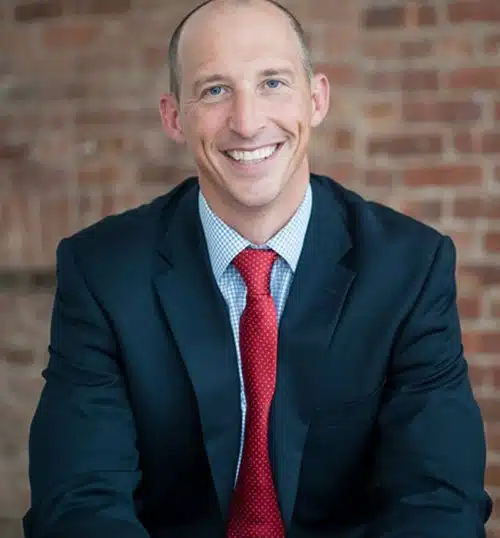Why a Starter Home is Now a Bad Idea
If you were around during the housing boom of the last decade, then you may be prone to some flawed thinking. I should know because I was too.
Back then, before the housing bubble burst, home prices were increasing steadily and by alarming rates. Homes were selling for well over their true market value. Plus, mortgages were easy to come by and interest rates were at all-time lows.
The popularity of the “starter home” skyrocketed with more people given the opportunity to purchase real estate who may have been previously denied home loans in earlier years. And with access came a little greed too, because the mortgage-backed security debacle made everyone believe they could profit quickly off of real estate.
Advice: If you haven’t watched the movie “The Big Short” you should!
The idea of a starter home is that you purchase a real estate asset with the intention and expectation of selling it after a limited amount of time. In theory, your starter home will appreciate in value after five years and afford you the ability to upgrade into a larger home as your family grows or your needs change.
Of course all this hinges on the assumption that the value of a starter home increases within a five year timespan. For this reason, a starter home is not a wise financial decision and here’s why:
My Own Harsh Lessons in Real Estate
Let’s take my own experience as a teachable moment. I bought my first home in 2004 and watched its value increase rapidly within the first few years. I had built up so much equity in my property during this time that I borrowed equity so that I could make a second real estate purchase – a similar mistake many Americans made during this real estate bubble.
Ultimately, my real estate luck was short-lived. You see, I had purchased at the height of the real estate bubble and quickly experienced what so many Americans shutter to remember: tumbling housing prices. I eventually wound up selling both homes. My second home purchase I sold for a loss in 2012. And I only made a very small profit from the sale of my first home in 2015 that once held so much equity.
The entire experience changed me and helped inform an important financial perspective I share with you now about starter homes.
Your Home: Good Investment or Not?
Like everyone around me at the time, I had viewed home ownership as an easy way to grow my net worth and I fell victim to some flawed thinking. The truth of the matter is the American dream of home ownership isn’t a slam dunk.
I lost sight of the idea that a home is, first and foremost, a place to live – not an investment. Furthermore, if you view your home as an investment, it’s not even a very good one.
The Real Value of Homes Rises Slowly
Nobel Prize winner and Yale economist Robert Shiller brings to the discussion a blend of historical data and expertise on the human psyche. He argues that housing is not such a great investment even if you’re in it for the long-term.¹
In his analysis, Shiller found that in the century between 1915 and 2015, farmland’s value increased only 3.1 times. That’s only a 1.1% increase in value each year. Dismal!
And real home prices look even worse over the same period of time: an average increase of only 0.6% each year.
Costs of Home Ownership
Moreover, it’s important to consider the cost of owning a home. There are initial costs, as well as ongoing maintenance costs associated with owning your own home. Up front, you have the following purchase-related expenses:
- inspection fees
- appraisal fees
- closing costs
- moving costs
- furniture
- hen factor in the costs you’ll incur year after year for as long as you own a home:
- property taxes
- homeowner’s insurance
- HOA or Condo fees
- maintenance
- repairs/upgrades
- utilities
- property care
Without considering all the various costs of home ownership, your “investment” can become dramatically less profitable depending on where you live.
Misunderstanding ‘Equity’
Finally, understanding how equity works is critical. Building equity by paying off a mortgage sounds nice. However, in the first few years of a loan, the majority of your monthly mortgage payment goes toward paying more of interest than the actual principal of your mortgage.
Tip: One way to pay more towards your principal in the beginning is to make an additional payment towards your mortgage. Anything you pay above and beyond your loan payment amount will go 100% towards principal. However, paying down that mortgage early isn’t always the best idea.
This means that as far as starter homes are concerned, building equity in your real estate asset is slow growing at first in most stable housing markets.
Conclusion
The bottom line: don’t buy the starter home. Don’t buy a home with the intention of trying to sell it for a profit in a few short years. Instead, rent a home and save the amount you would have been spending on those aforementioned costs for when you are ready to buy (and more easily afford) the house you will be in for a long time.
References
1.Shiller, Robert. Why Land and Homes Actually Tend to be Disappointing Investments. The New York Times. Retrieved 2/2/2017 from https://www.nytimes.com/2016/07/17/upshot/why-land-may-not-be-the-smartest-place-to-put-your-nest-egg.html?_r=0



